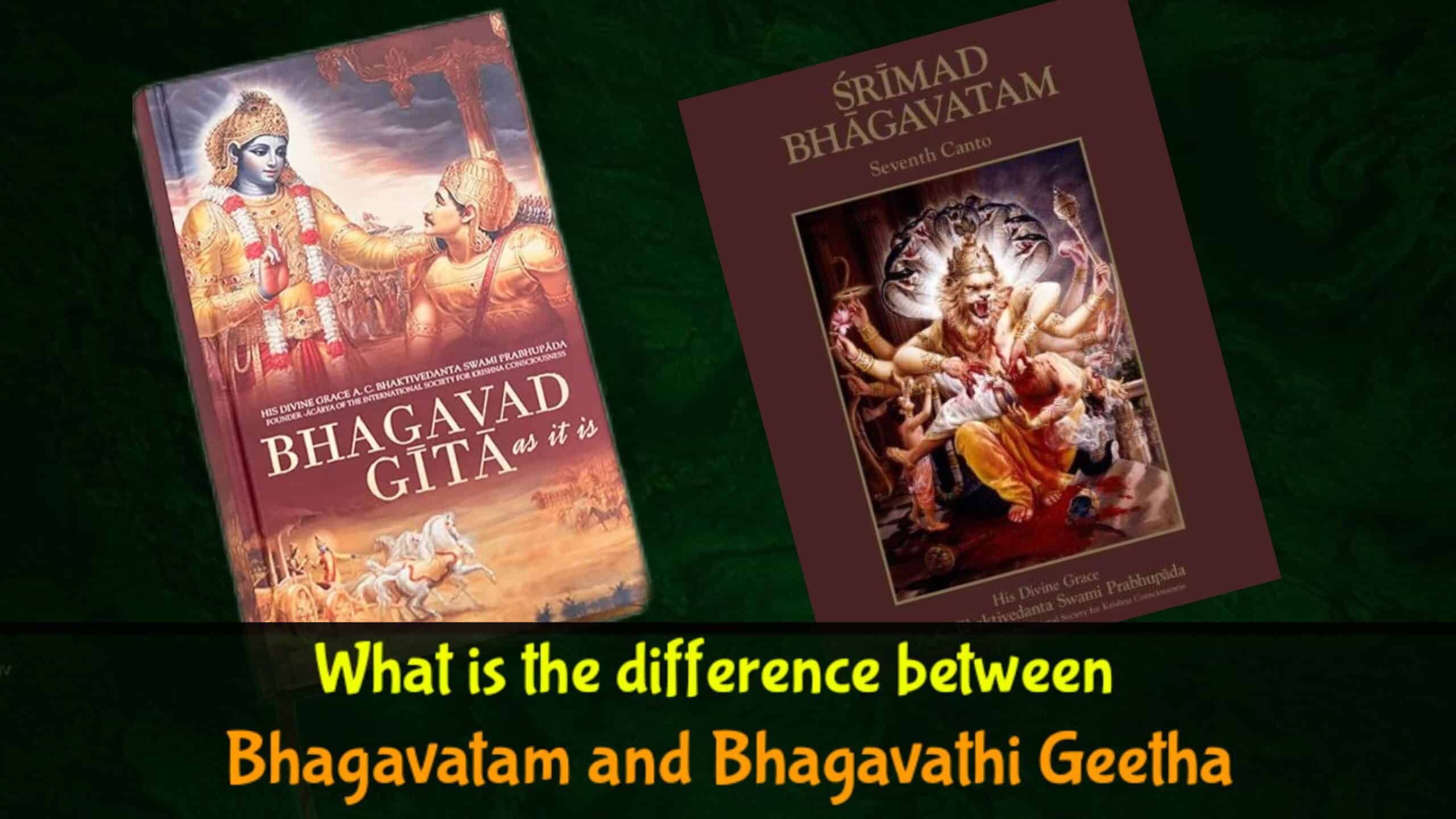Understanding the Difference Between Bhagavatam and Bhagavad Gita?
In the vast ocean of Vedic literature, two texts stand as monumental pillars of spiritual wisdom: the Bhagavad Gita and the Bhagavatam (commonly referred to as the Srimad Bhagavatam). Both of these revered scriptures originate from ancient Hindu tradition and are integral to understanding the philosophical and spiritual ethos of Vedic culture. However, they serve different purposes, offer unique insights, and cater to varying aspects of life and spirituality.
In this blog post, we will delve into the key differences between these two sacred texts from a Vedic perspective, exploring their origins, content, themes, and overall significance.
Origins and Composition
Bhagavad Gita
The Bhagavad Gita, often referred to simply as the Gita, is a 700-verse dialogue that is part of the Indian epic Mahabharata. It is set on the battlefield of Kurukshetra, where the prince Arjuna faces a moral and existential crisis. At this pivotal moment, Lord Krishna, serving as Arjuna’s charioteer, imparts profound spiritual wisdom and guidance.
- Authorship: Traditionally attributed to the sage Vyasa, who is also the author of the Mahabharata.
- Structure: Composed of 18 chapters, each known as a “yoga,” or path, covering various aspects of dharma (duty), bhakti (devotion), and jnana (knowledge).
Srimad Bhagavatam (Bhagwatam)
The Srimad Bhagavatam, also known simply as the Bhagavatam, is a voluminous text consisting of 18,000 verses divided into 12 cantos. It is regarded as one of the Puranas, a genre of ancient Indian literature that includes mythological stories, traditions, and legends.
- Authorship: Also attributed to the sage Vyasa, who is believed to have compiled the work after composing the Mahabharata.
- Structure: The text is organized into 12 books (cantos), each containing numerous chapters that narrate the stories and teachings of various avatars (divine incarnations) of Lord Vishnu, with a special emphasis on Lord Krishna.
Themes and Content
Bhagavad Gita
The Gita is a concise philosophical treatise that addresses the moral and spiritual dilemmas faced by individuals in their daily lives. Its core message revolves around the following themes:
- Duty and Righteousness (Dharma): Arjuna’s initial dilemma is whether to fight in the battle and fulfill his duty as a warrior. Krishna advises him on the importance of performing one’s duty without attachment to the results.
- Paths to Liberation (Moksha): Krishna elucidates various paths to spiritual liberation, including Karma Yoga (the yoga of action), Bhakti Yoga (the yoga of devotion), and Jnana Yoga (the yoga of knowledge).
- The Nature of Reality: The Gita explores the nature of the self (atman), the material world (prakriti), and the ultimate reality (Brahman).
Srimad Bhagavatam
The Bhagavatam is a comprehensive and elaborate scripture that recounts the divine pastimes and teachings of Lord Vishnu and his avatars. Its primary themes include:
- Devotional Service (Bhakti): The Bhagavatam places a strong emphasis on pure devotion to Lord Krishna as the ultimate means of attaining liberation. It narrates numerous stories of devotees and their unwavering faith.
- Cosmology and Creation: The text provides detailed accounts of the creation and structure of the universe, as well as descriptions of various planetary systems and divine realms.
- Moral and Ethical Lessons: Through its rich tapestry of stories and parables, the Bhagavatam imparts moral and ethical lessons, illustrating the consequences of righteous and unrighteous actions.
Purpose and Significance
Bhagavad Gita
The Bhagavad Gita serves as a practical guide for individuals seeking to navigate the complexities of life while maintaining spiritual integrity. It addresses universal questions about duty, purpose, and the nature of existence, making it relevant to people from all walks of life.
- Spiritual Practice: The Gita encourages readers to integrate spiritual practice into their daily lives, emphasizing the importance of selfless action, devotion, and knowledge.
- Philosophical Inquiry: It invites readers to engage in deep philosophical inquiry and self-reflection, fostering a greater understanding of the self and the cosmos.
Srimad Bhagavatam
The Bhagavatam is revered as a devotional scripture that inspires readers to cultivate a deep and intimate relationship with the Divine. It is often studied and recited in devotional gatherings and serves as a source of spiritual nourishment.
- Devotional Inspiration: The Bhagavatam’s stories and teachings inspire devotees to develop a loving and devoted relationship with Lord Krishna, encouraging practices such as chanting, meditation, and worship.
- Cultural and Religious Heritage: It preserves and transmits the rich cultural and religious heritage of ancient India, offering insights into the spiritual traditions and practices of the Vedic era.
Conclusion
In summary, the Bhagavad Gita and the Srimad Bhagavatam are two distinct yet complementary texts within the Vedic tradition. While the Gita provides practical philosophical guidance for navigating the challenges of life, the Bhagavatam offers a profound devotional narrative that deepens one’s relationship with the Divine. Together, they form a comprehensive spiritual framework that has guided countless seekers on their journey toward self-realization and liberation.
For those who are new to these texts, the Bhagavad Gita may serve as an accessible entry point, offering concise and practical wisdom. As one delves deeper into the spiritual journey, the Srimad Bhagavatam provides a more expansive and immersive experience, enriching one’s understanding of the divine pastimes and teachings of Lord Krishna.
Whether you are seeking philosophical insights, practical guidance, or devotional inspiration, both the Bhagavad Gita and the Srimad Bhagavatam hold timeless wisdom that can illuminate your path and transform your life.
